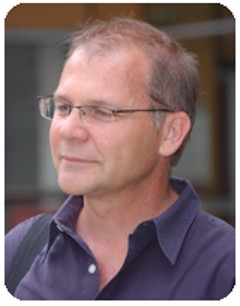

Mar 2025

Abstract:
A major challenge for global food security is the lack of fresh water, making up only 3 % of total available water. 70 % of fresh water is currently used for agriculture but becomes increasingly under pressure by an increasing global population and industrialization. The effects of climate change enhance the frequency of heat and drought waves and scorge harvest yields by more than 60 % world-wide. At the same time, future agriculture is supposed to produce more food on less land and less inputs. We develop solutions by studying extreme ecosystems, where nature has selected solutions over thousands to millions of years. Our research on desert ecosystems provides the first Bioatlas of Saudi Arabia, comprising a complete compendium of the soil physics, chemistry and the biome structures of a range of the different KSA ecosystems. Based on the isolation and genomic characterization of thousands of soil and plant microbial strains, effective sustainable solutions for regreening and agriculture can be tailored to the geographical and environmental specificities. Specific desert strain consortia enhance plant water use efficiency, heat tolerance and pathogen resistance showing that the knowledge of soil-plant-microbial ecosystems provides powerful tools for enabling regreening and food safety in desert areas.
Bio:
Hirt studied biochemistry at the Univ. of Cape Town and Vienna where he received his PhD in 1987. After post-doctoral fellowships at the Univ. of Oxford and Wageningen, he became Professor of Genetics at the Univ. of Vienna and Vice-Director of the Gregor Mendel Institeu of Plant Molecular Biology. In 2007, he was nominated Director of the INRAe Plant Genomics Institute in Paris and of the Center for Desert Agriculture at KAUST in 2014. Since 2022, he is also speaker of the PlantACT! initiative, a global think tank, that tries to develop plant-based solutions to climate change (https://www.plant-act.org/).
Hirt has a long standing record on how plants can survive under abiotic or biotic stress conditions (h-index 103). His current research is focused on the symbiosis of plants, microbes and soils in deserts and how knowledge of these factors can contribute to make crop plants resilient to abiotic or biotic stress conditions (https://www.heribert-hirt.org/). His work also aims to provide sustainable solutions to reestablish forestation and sustainable carbon sequestration in arid regions of the world.